Topic: World War II
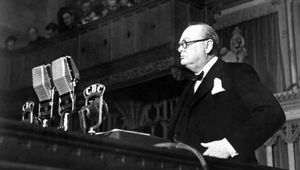
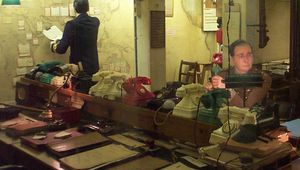
Touring World War II landmarks in Britain
A collection of terrific visits that illuminate and inspire, and bring World War II to us today.
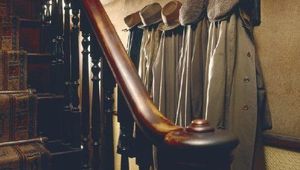
Time travel with a visit at William Straw's house
Mr. Straw's House, 7 Blyth Grove, in Worksop, a treasure chest of fascinating 1920s objects, fashions, and memories from inter-war Britain.
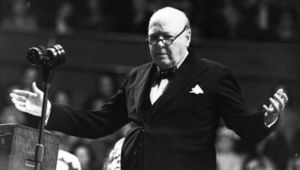
Roosevelt and Churchill's 1941 Christmas speech during WWII
When Winston Churchill went to Washington following Pearl Harbour, the world took notice.
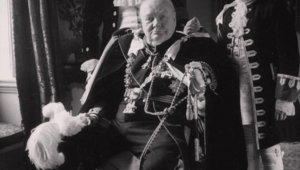
Queen Elizabeth II and Winston Churchill's unlikely friendship
The pair who ruled during World War II enjoyed a deep and enduring friendship despite their differences.
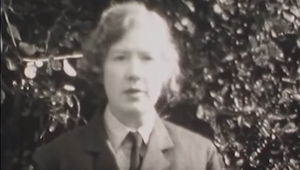
World War II British spy centre's rare 11-minute home movie
Bletchley Park, the British Spy Center of the Second World War, released rare silent footage of the MI6 staff members from the code-breaking facility.
BHT newsletter
Subscribe to our Newsletter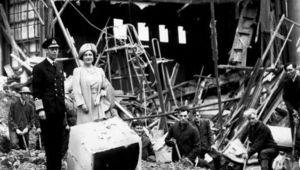
The day Buckingham Palace was bombed during WWII
Friday 13th, a day that sends shivers down everyone's spine, and is known for bringing bad luck. Even to the Royal Family and never more so than during World War II, in 1940.
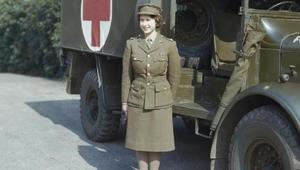
WATCH: "Queen at War" shows how World War II shaped Queen Elizabeth II
A PBS documentary show's how the people and Queen Elizabeth lived through World War II.
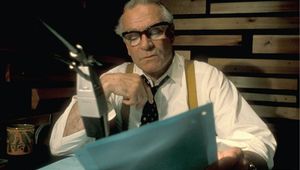
The World at War: Updating history
When the ITV series "The Word at War" came out in 1973, many people thought it marked a signal change in television documentaries, with its extensive archival footage, talking-head interviews, and sweeping, panoramic vision of World War II.
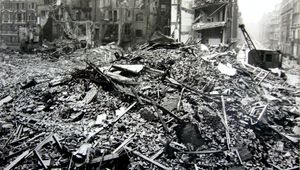
A World War II survivor recalls the London Blitz
Joan McKenzie, a survivor, recalls World War II's Hitler's V-weapon offensive during the Blitz.
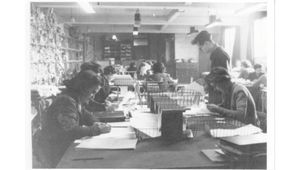
The World War II codebreakers of Bletchley Park
The teams of men and women at Eastcote, Britain’s code-breaking center, who were vital in saving Western civilization during WWI.
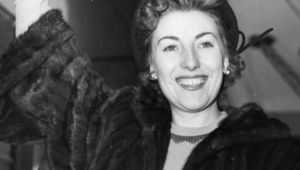
Great British heroes: Vera Lynn - "The Forces Sweetheart"
In the bleak years of World War II, Vera Lynn’s songs captured the spirit of their times and charged the morale of British servicemen everywhere.
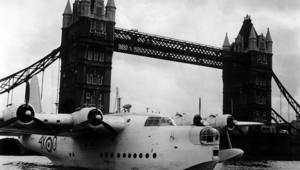
The night 76 allied soldiers escaped from a German POW camp during WWII
Sadly only three of the men survived, however, the group of British and Allied airmen's story of bravery and ingenuity is unparalleled.
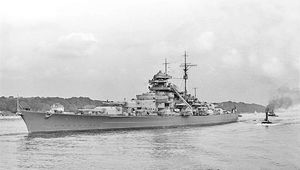
The hunt for World War II's Bismarck
Germans abandoning their mission to attack British shipping were intercepted, and a showdown began between the British Home Fleet and Bismarck, the German navy's most powerful warship.
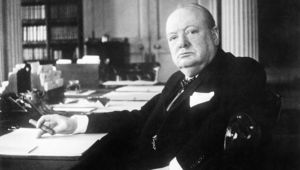
Winston Churchill gives his famous speech "The Few" in the House of Commons
"Never in the field of human conflict was so much owed by so many to so few."
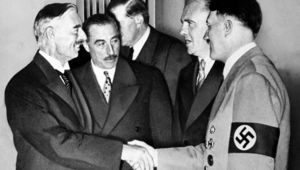
On the brink of WWII: Neville Chamberlain and the ill-fated Munich agreement
On September 30, 1938, British Prime Minister Neville Chamberlain uttered those famous words, "I believe it is peace for our time," after returning from a meeting with Adolf Hitler in Munich.
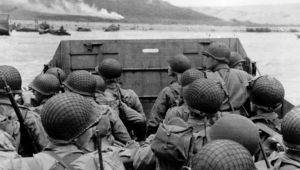
Covering D-Day: An allied journalist's perspective
Detailed reports from embedded journalists give an incredible perspective on the reality of D-Day, and the Normandy landings.
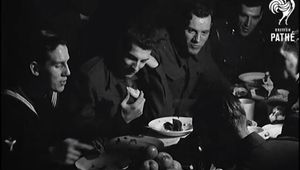
Christmas joy during WWII: Allied troops celebrate in British Pathe newsreel
In the midst of the darkness and uncertainty that World War II cast over the world, a flicker of holiday cheer emerged as depicted in a British Pathe newsreel titled "Allied Troops Celebrate Christmas".
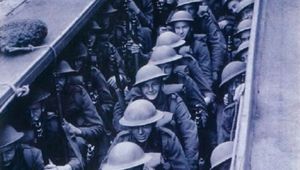
Eyewitness accounts of the horror of World War II's D-Day
D-Day was not about a master plan executed perfectly; it was about walking straight into hell and hopefully finding a way back out.
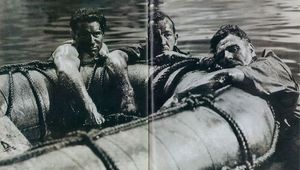
Real to reel: World War II and British film
The historical fact often takes a back seat to dramatic conventions when Britain war effort is portrayed on film.
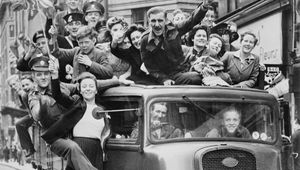
What you need to know about VE Day
Victory in Europe Day (known as VE Day), May 8, celebrates the formal acceptance by the Allies of World War II of Nazi Germany's unconditional surrender of its armed forces.
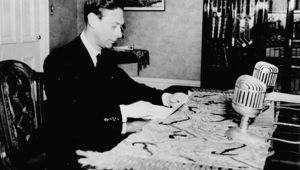
King George VI's historic and moving VE Day speech
On May 8, 1945, King George VI delivered a victory speech celebrating the defeat of Nazi Germany and paid tribute to those who lost their lives in World War II.
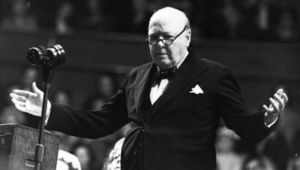
Winston Churchill's VE Day speech
Have you seen this amazing clip?
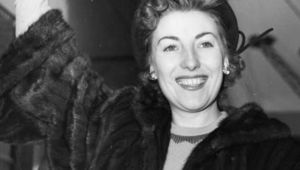
On This Day: Dame Vera Lynn was born in 1917, in London
The beloved singer, Dame Vera Lynn, was best known for her work during World War II, when she kept spirits high with her wistful songs.
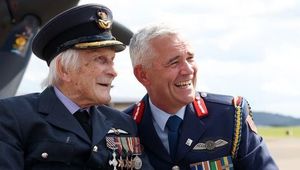
Last surviving pilot of Battle of Britain against Nazis honored at Irish Veterans Day celebrations
The Irish Air Corps celebrated a special centenary Veterans Day in Dublin and paid tribute to Group Captain John 'Paddy' Hemingway, the last known Battle of France and Battle of Britain pilot.
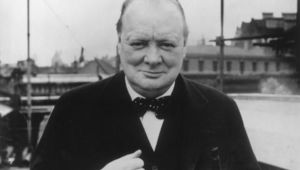
Winston Church World War Two letter sells for thousands
A letter written by Prime Minister Winson Church, in which he praises Second World War test pilot Neville Duke has sold for £8,000 at Sotheby's.
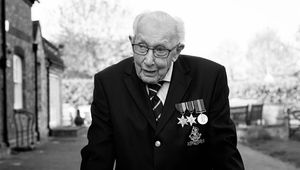
Queen Elizabeth promotes Captain Tom to Colonel on his 100th birthday
Honorary Colonel Tom Moore tuns 100 today having raised over £30 million for the health service to help battle COVID-19.
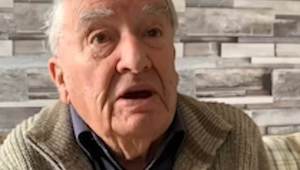
WWII D-Day vets plead with British to stay at home to fight Covid-19
"I served my country and did my duty, now it's your duty to sit on the couch."




